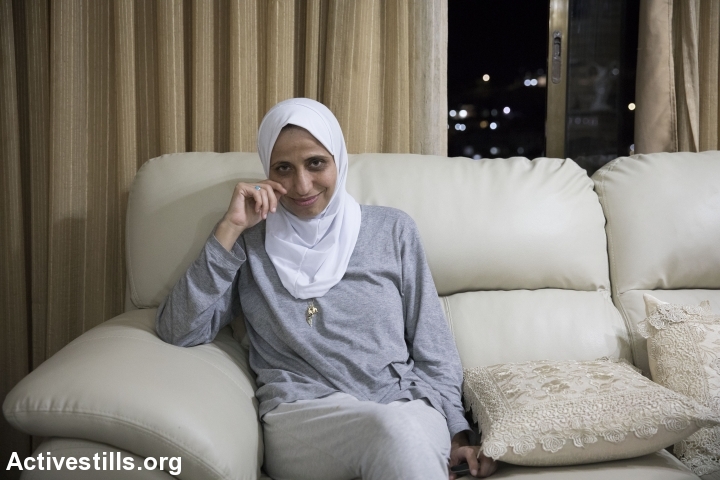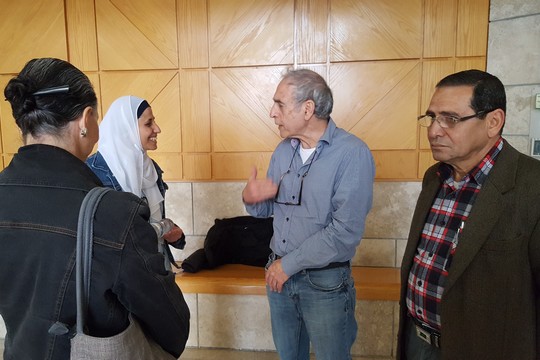Dareen Tatour is currently on trial for publishing a poem on Facebook.
By +972 Magazine Staff

Over 1,000 Israelis have signed a petition calling for the release of Dareen Tatour, a Palestinian poet who has been under house arrest for publishing a poem on Facebook.
Tatour, 34, from the village of Reineh near Nazareth, was arrested by Israeli police on October 11th, 2015 for a poem she had published on Facebook, along with a number of other Facebook statuses she posted at the height of the stabbing and vehicle ramming attacks in 2015-2016. She is currently facing trial after being charged with incitement to violence and identifying with a terrorist organization.
The main clause of her indictment was based on a poem she had posted on YouTube under the title: “Qawem ya sha’abi, qawemhum” (Resist my people, resist them). Another main clause in the indictment relates to a news item, cited in a post on Tatour’s Facebook page, according to which “The Islamic Jihad movement calls for continuing the Intifada all over the [West] Bank…” The same post calls for a “comprehensive intifada.”
According to the petition, Dareen’s trial was an “absurd show trial that turns a young poet who writes what she feels into a dangerous inciter, a potential terrorist. Beyond the attempt at censorship and limiting creative freedom, this case stretches the definition of incitement to the point that every citizen or artist can be arrested for expressing anger or artistic criticism at the government.”

“Free Dareen Tatour, she is innocent,” continues the petition. “The only reason she was arrested is because she is not Jewish. Many other Jewish Israelis have written far harsher things and are walking around freely. Two years have been taken away from her, release her from the cage, free her.”
Following her arrest, Tatour was jailed for three months before being released and put under house arrest in apartment in Kiryat Ono, just outside Tel Aviv, at the demand of Israeli authorities. She was forced to wear an ankle monitor, was forbidden from use the internet, the phone, or any other means of communication.
In November, Tatour testified and admitted that she had written the statuses. She explained that she was protesting the occupation, denouncing the crimes committed against Palestinians by the Israeli army and the settlers, adding that the police translation distorted her texts. In May 2017, an Israeli court decide to ease the conditions of her arrest, allowing her to live under house arrest in her home village, where she may only leave her house accompanied by a custodian.
In July 2016, over 150 literary icons, including Alice Walker and Dave Eggers, signed a letter in solidarity with Tatour, calling Tatour’s imprisonment “part of a larger pattern of Israeli repression against all Palestinians.” A few months later, over 200 Israeli cultural luminaries published a statement calling for Tatour’s release.
